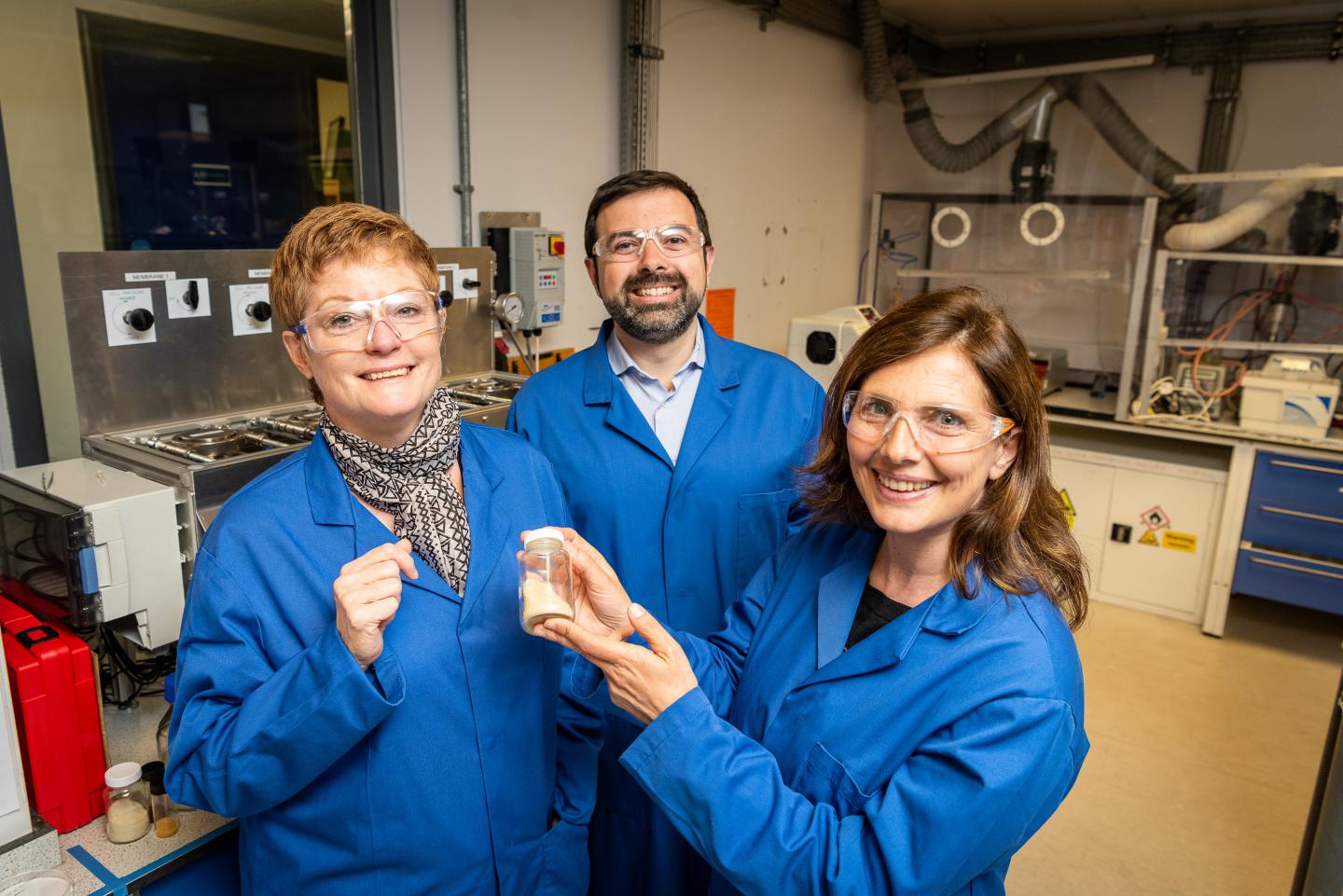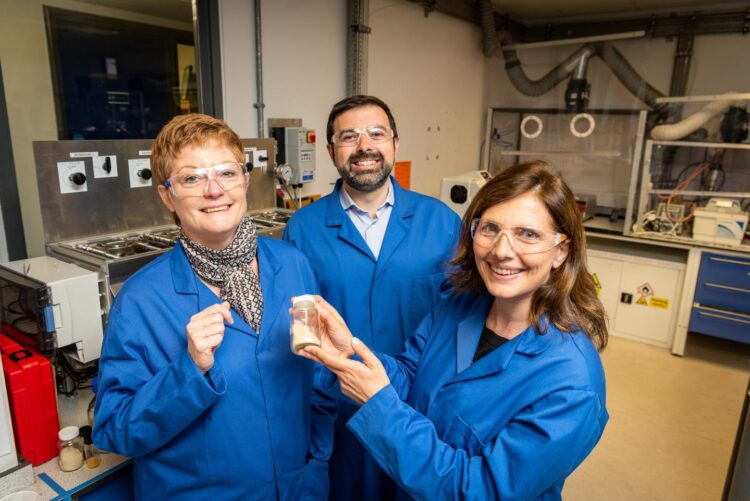
Credit: University of Bath
University of Bath spin-out company Naturbeads has been awarded funding to develop their biodegradable alternative to plastic microbeads that could cut the use of microplastics in a range of industries including pharmaceutical, chemical and cosmetics.
An estimated 250,000 tonnes of microplastics from consumer and industrial products end up in our world’s oceans every year. This is equivalent to the plastic pollution generated by 20 billion plastic bottles.
Some of these microplastics are eaten by marine life, passing up the food chain and ending up on our plates.
Whilst plastic microbeads were banned from rinse-off personal care products such as shower gels and toothpaste, they are still used extensively in leave-on cosmetic products like wrinkle creams and make up, in paints and coatings, in detergents, in agriculture and horticulture and many other applications.
Naturbeads, based at the University of Bath, is working with companies to replace microplastics with biodegradable microbeads made from cellulose.
They have been awarded £47,000 by Innovate UK for a three-month project as part of the competitive Small Business Research Initiative which enables organisations to research and develop products that provide innovative solutions. This is the 3rd Innovate UK grant awarded to the company since January 2019 for a total funding of over £1m.
The feasibility study will investigate using cellulose microbeads as a carrier for enzymes in industrial chemical production.
Enzymes are biological catalysts from cells which work like tiny machines to speed up chemical reactions. They are often used in the pharmaceutical industry to do complex chemistry at low temperatures that would require many steps if done manually.
Dr Giovanna Laudisio, CEO and Co-Founder at Naturbeads, said: “Enzymes are attached to plastic microbeads to catalyse a wide range of chemical reactions making products that can be used in pharmaceuticals, food, and cosmetics.
“Linking the enzymes to microbeads enables them to be easily separated and recovered from the end product.
“We are working with the biocatalysis company ChiralVision to replace the plastic microbeads with biodegradable ones made from cellulose, which is a material found in plants that can be broken down in the environment naturally.
“This project is particularly exciting because it brings together the know-how developed in academia by Professor Karen Edler, Naturbeads’ core processing technology, and an industrial partner looking forward to exploit commercially the outcome of this project.
“As a pre-revenue company we are really grateful for the funding from Innovate UK that allows us to complete a feasibility study that, if successful, will allow us to engage with investors for the next phase of scale up.”
Professor Karen Edler, from the Centre for Sustainable Circular Technologies at the University of Bath, said: “We’ve already proven that our cellulose microbeads can be used on a small scale in the lab. This project will enable us to explore the feasibility of doing this on an industrial scale.
“It’s really exciting to see our research taken out of the lab and put into use in industry.”
###
Media Contact
Vicky Just
[email protected]
Original Source
http://www.





